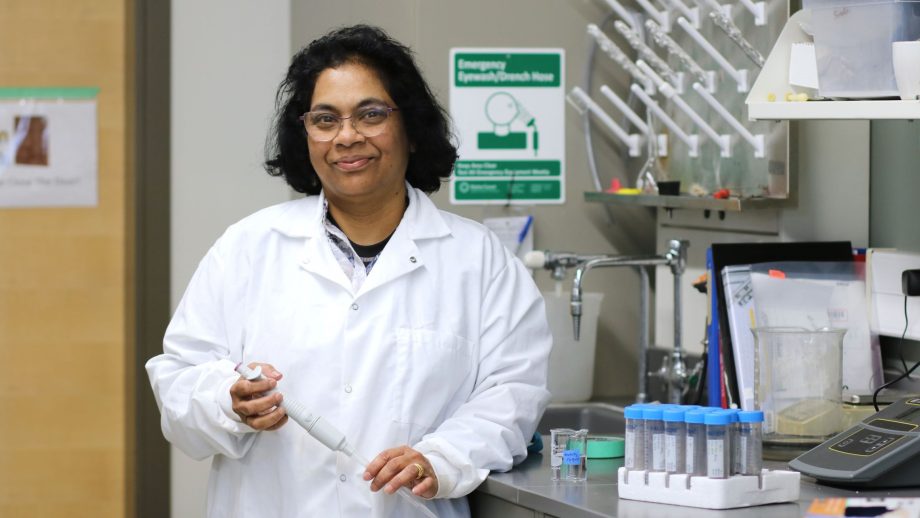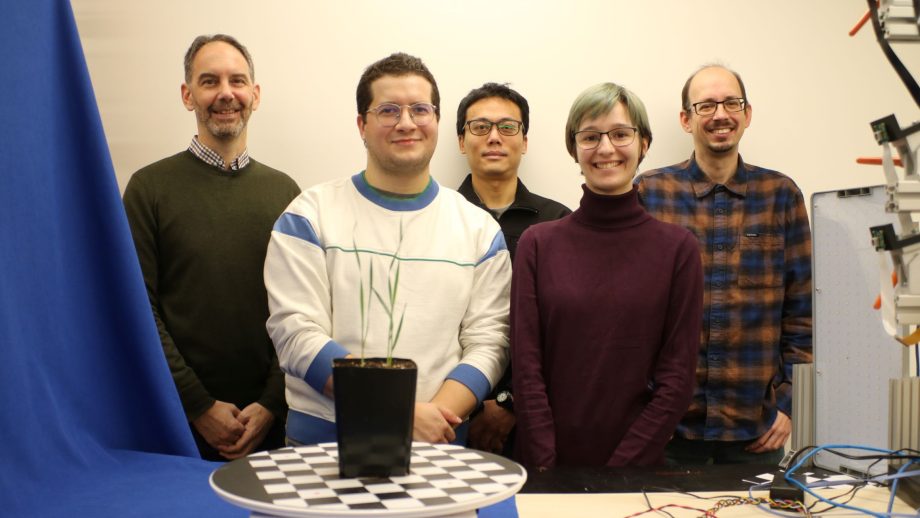“What if my cancer returns?”
Dr. Anuraag Shrivastav, Professor in the Department of Biology at The University of Winnipeg, says this is a common question among cancer survivors.
If you know that there is a high chance of recurrence, patients can be monitored more frequently.
Dr. Anuraag Shrivastav
And it’s a question he hopes to answer for breast cancer survivors.
Dr. Shrivastav and his research team have developed a simple predictive and prognostic breast cancer test that can help take away the constant fear of “what if” from breast cancer patients. The test could predict, right at the time of diagnosis, whether there is a likelihood of recurrence in hormone receptor-positive breast cancer patients.
The test has already undergone a clinical study with close to 600 patients and has received support from Research Manitoba through an Innovation Proof-of-Concept Grant, which will provide a total of $100,000 in funding across two years.
“At the onset of diagnosis, we can tell patients the likelihood of the disease returning,” Dr. Shrivastav explained. “We can potentially save many lives where there is a potential of recurrence by early interventions.”
This isn’t the first time Dr. Shrivastav was supported by Research Manitoba for a brand-new cancer test. Last year, he received $261,000 to conduct a study to validate a new screening test designed to earlier detect colorectal cancer earlier.
How Does It Work?
Once cancer is detected in a patient, the test is completed on the initial biopsy or tumor.
When it comes to hormone receptor-positive breast cancer, Dr. Shrivastav says it’s one of the most treatable cancers and has high survival rates. To treat this cancer, patients are given hormonal therapy, but there are no guidelines for how long they should be on those drugs.
Because the test can tell the likelihood of recurrence, patients can proactively begin preventative therapies rather than waiting for a recurrence. Another benefit of the test is to decide who should be on long-term hormonal therapy.
“If you know that there is a high chance of recurrence, patients can be monitored more frequently,” Dr. Shrivastav explained.
Proof-of-Concept Study
In total, 1,200 patient samples will be tested during the proof-of-concept study.
“We’re going to validate the test larger cohort from BC Cancer Tumour Tissue Repository and the Ontario Tumor Bank,” Dr. Shrivastav noted. “It’s a retrospective study that’s easy to do, so you can go back to the tumor bank, get those samples, test, and look at the history.”
Once the test is validated, it can be launched as a lab test or, if a company is interested, there could be commercialization opportunities.
Whatever the future holds for this test, Dr. Shrivastav has one goal: to save lives.





